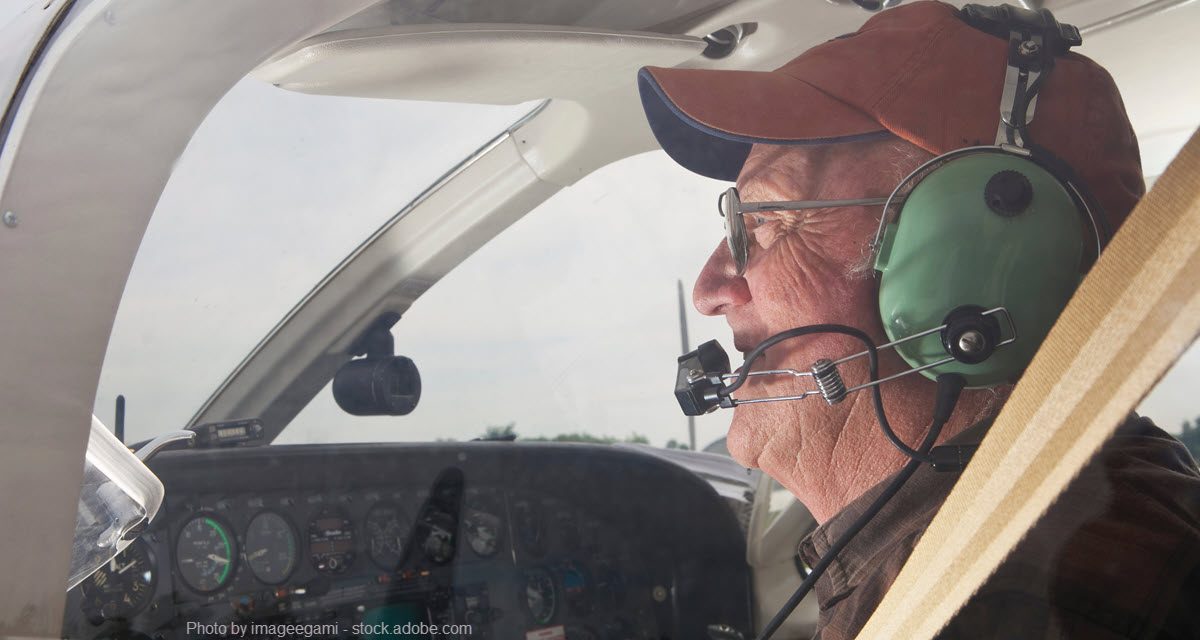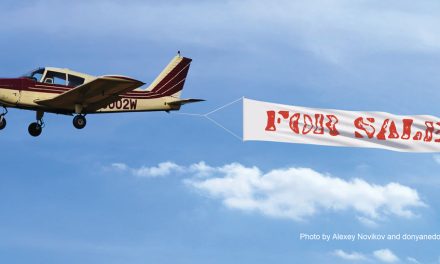By Avemco Insurance Company
As pilots age, they face unique challenges in maintaining their insurability, but with the right approach, they can continue to enjoy their passion for flying while ensuring they are covered adequately. Avemco Insurance Company, a pioneer in direct aircraft insurance since 1961, offers the following valuable advice for older pilots to stay insured and safe.
1. Stay Active in Flying
First and foremost, keep flying actively! Flying is not like riding a bicycle; it is a mental and physical skill that needs to be exercised. The bonus here is that your airplane needs exercise as well to keep the engine and avionics in great shape. If you are an instrument pilot, it is critical to stay current (and legal) by flying approaches on a regular basis. Active engagement in flying not only helps maintain skills but also demonstrates to insurance companies that you are committed to safety and ongoing education.
2. Keep Training and Sharpen Your Skills
Insurance companies like to see their policyholders undergo recurrent training with regular Flight Reviews and Instrument Proficiency Checks. There are also a variety of excellent resources for recurrent training, such as the Bonanza Pilot Proficiency Program (BPPP), the Baron Pilot Training (BPT) program, the Redbird Pro App, and the FAA WINGS courses. Cessna owners can seek out an instructor with make and model-specific experience. Ongoing proficiency training with an instructor who is well-versed in the operation of your airplane is incredibly valuable. Sharpening your skills with these tools may also qualify you for additional insurance discounts.
3. Understand Your Coverage Before Changing Aircraft
Avemco emphasizes the importance of consulting your insurance company before purchasing a new aircraft. Just because you are insurable on your current aircraft, your coverage does not automatically transfer to a different type or model. This is not only the case if upgrading to a higher-performance machine; you might also be surprised if you are transitioning down to a tailwheel or Light Sport Aircraft. By contacting your insurer in advance, you can obtain a clear understanding of the potential insurance costs and map out a transition training plan that can enhance your safety.
4. The Value of Loyalty
Lastly, Avemco Insurance Company advises older pilots to stick with their current insurance provider once they find a company willing to insure them. Staying with one insurer shows stability and may lead to better terms over time, as the insurer values your continued patronage and trust. Keep in mind that just because you might be working with the same insurance agent does not necessarily mean that they will be renewing you with the same underwriter. We encourage you to take the time to review the options provided by your agent and compare them to various companies to make an informed decision.
For older pilots, maintaining insurability requires a proactive approach to flying and a stable relationship with their insurance provider. By continuing to train, using valuable educational resources, and communicating openly with their insurer, older pilots can not only ensure they are covered but also continue to enjoy the skies safely and confidently. Avemco is ready to assist older pilots with direct access to decision-makers who understand their needs and can provide tailored coverage solutions.
Avemco’s Aviation Underwriters are here for you weekdays 9:00 AM ET – 6:00 PM ET. Call 800-276-5203 or e-mail avemco@avemco.com or visit www.avemco.com to start your aviation insurance quote online.
Articles and news items provided by Avemco® are not intended to provide technical or legal advice. Content is for general information and discussion only and is not a full analysis of the matters presented. The information provided may not be applicable in all situations, and readers should always seek specific advice from the FAA and/or appropriate technical and legal experts before taking any action with respect to any matters discussed herein. Articles provided by independent sources solely reflect the views of their respective authors and should also not be regarded as technical or legal advice. ART0199 (04/24)






